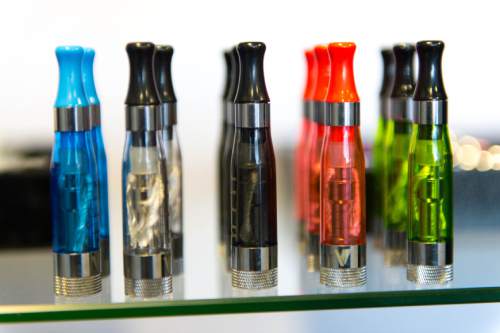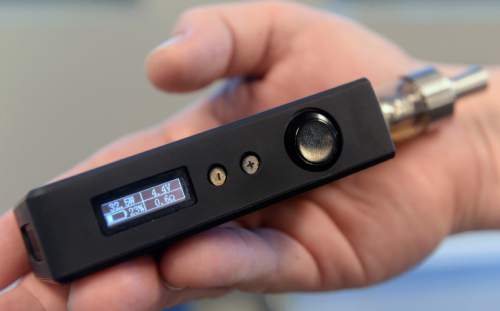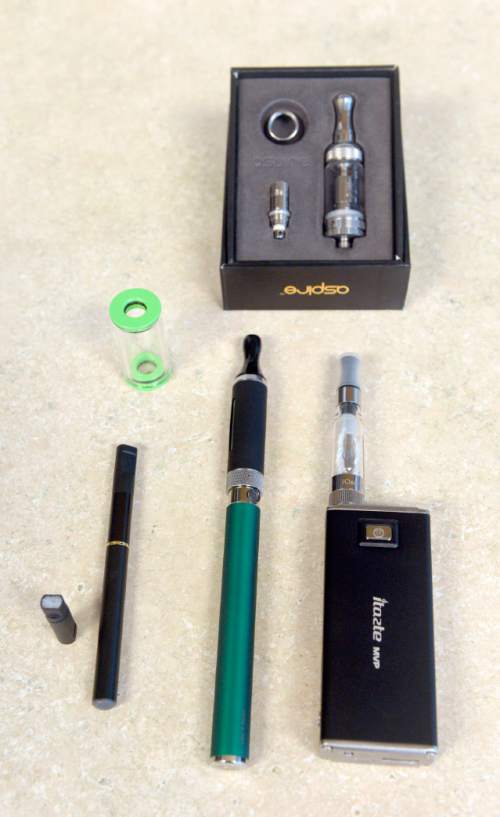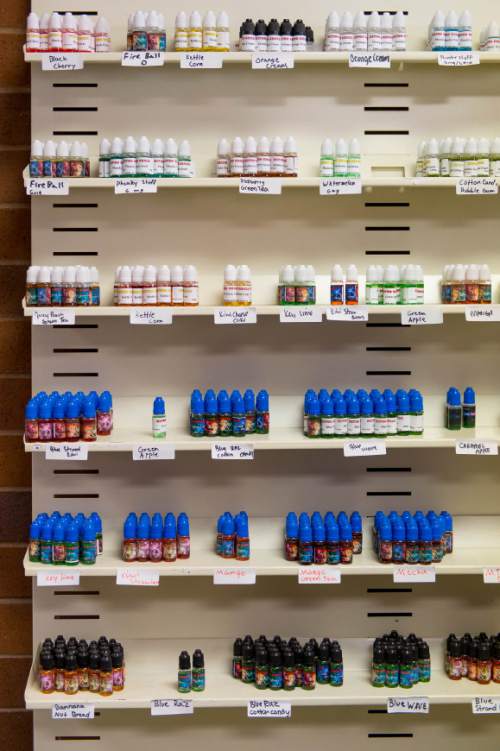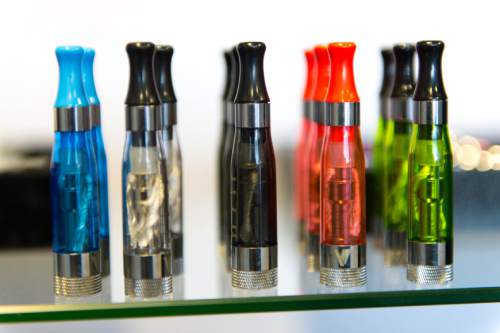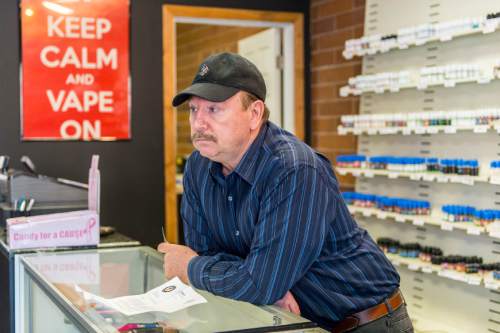This is an archived article that was published on sltrib.com in 2015, and information in the article may be outdated. It is provided only for personal research purposes and may not be reprinted.
National e-cigarette groups are urging Gov. Gary Hebert to veto a bill that would regulate the sale of e-cigarettes and the liquids they vaporize, arguing the measure contains a gift-wrapped exemption for Big Tobacco.
The bill — HB415, sponsored by Rep. Paul Ray, R-Clearfield — imposes labeling and quality-control requirements on makers of e-cigarette "juices." That includes a mandate that they have a childproof cap and that the nicotine content on the label actually reflects the amount in the liquid.
But the labeling requirements do not apply to sealed e-cigarettes, commonly sold at convenience stores.
That exempts the products made by companies such as R.J. Reynolds and Altria from the regulations, said Gregory Conley, president of the American Vaping Association. In doing so, Conley said, the bill doesn't apply to Big Tobacco — Altria, Reynolds American and Lorillard — companies that have cornered 96 percent of the sealed e-cigarette market.
"The past misdeeds of tobacco companies are often used as justifications for harsh regulation of vapor products," Conley wrote. "Exempting from regulation the e-cigarette products made by these companies does not pass the sniff test."
Regulating one segment of the industry and not the others, Conley argued, puts Big Tobacco's competitors at a severe disadvantage.
Ray said it made sense to exempt the sealed e-cigarettes because they don't pose the same risk that a child could unscrew the lid and drink the juice.
"Second, they don't come in all the fun flavors that minors go for," Ray said. "And these are sold primarily by your convenience stores by people who already put them behind the counter. We have a good track record that we know they don't sell to minors because we're checking them all the time. … We're just not seeing the problems with the sealed ones that we see with the open bottles."
Ray said the main problem he was trying to confront is the lack of quality control among the makers of e-cigarette juices.
"Some of these are made in somebody's bathtub or their garage or basement," he asserted. "There's no labeling and the ones that do put labels on … the percentage of nicotine that is supposed to be in there, 86 percent of the time, is incorrect."
The Utah Smoke-Free Association isn't asking Herbert to veto the bill, believing it satisfies most of the group's concerns, said Aaron Frazier, the association's executive director.
"We believe the bill gave us 80 percent of what we wanted as an industry," Frazier said.
He was surprised that the Big Tobacco companies were exempted, but he said it's not worth trying to kill the bill and possibly end up with something worse next time. The group will watch as the Health Department spends the next several months crafting rules for the labeling requirements.
A veto appears to be unlikely. Utah Department of Health Executive Director David Patton was involved in crafting the new e-cigarette regulations.
Last month, the governor's office posted a video with Patton expressing the governor's concerns about e-cigarettes and support for regulating the industry. The governor had proposed a $32 million tax on e-cigarettes to help pay for his Healthy Utah plan to expand health coverage for Utah's poor.


